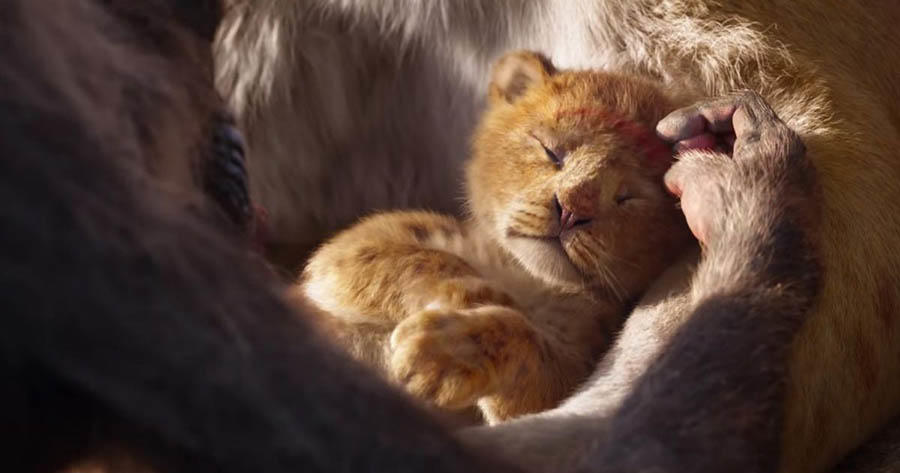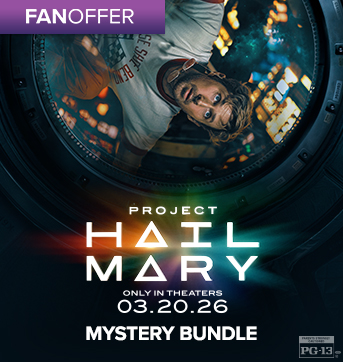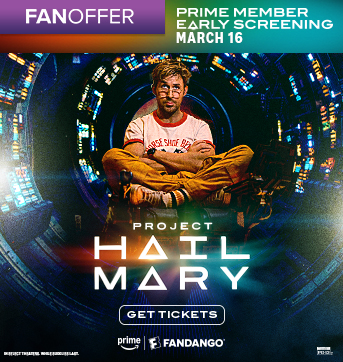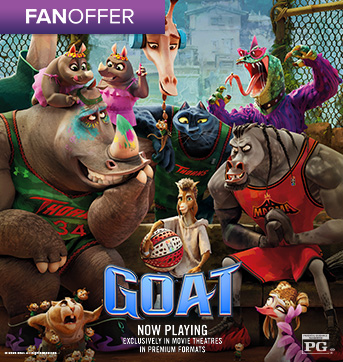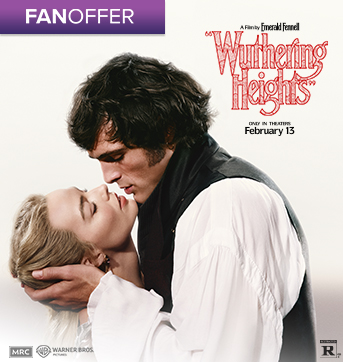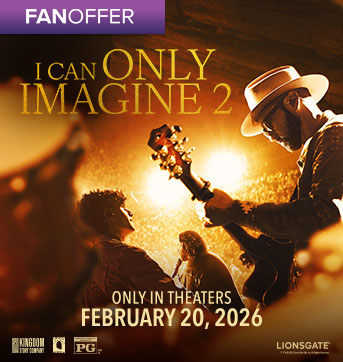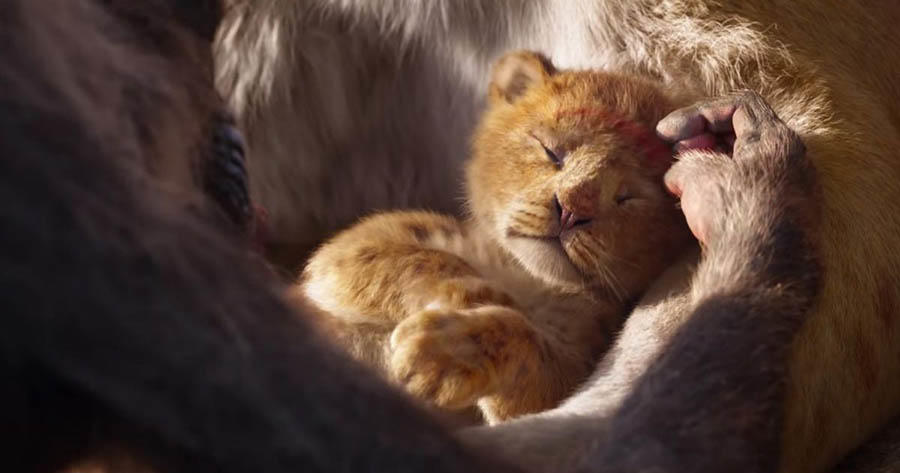
Can you feel the love approaching? That’s Disney’s new version of The Lion King, opening less than a month from now on July 19. Based on the classic 1994 animated feature, the upcoming movie reimagines, in a photorealistic live-action style, the story of Simba (Donald Glover), as he grows up in exile before taking his rightful place as king from his evil uncle Scar (Chiwetel Ejiofor). All our other favorite characters from the original, including Nala (Beyonce Knowles-Carter) and Pumbaa (Seth Rogen), return in a new yet lovable form as if they’re part of a Disneynature documentary.
With tickets now officially on sale for The Lion King here at Fandango, we spoke exclusively with director Jon Favreau, who has followed up his work helming the 2016 live-action redo of The Jungle Book with another groundbreaking effort here. He tells us how the highly anticipated new version is different while still honoring both the original movie and the iconic stage adaptation, the challenges of accomplishing such changes, and how the casting bridges the various versions and generations. And yes, he lost his mind over learning Beyoncé would be involved.
Favreau is having quite the year between his appearances in Marvel Studios movies and producing a new Star Wars TV series, but The Lion King should be his crowing achievement for 2019.
Fandango: Is The Lion King more of a straight remake than The Jungle Book was?
Jon Favreau: Yes.
Fandango: But are there any places where you veer away from being totally faithful to the original?
Jon Favreau: Well, we wanted to differentiate ourselves from the animated feature and from the stage production, but we wanted to still take into account that people have memories and a connection to those productions. So, the trick was to do something that fulfilled everybody's expectations of what The Lion King should be but still surprise them and put our own fresh take on it.
Some of that was through casting. Some of that was through the technology that we used. Some of it was trying to make the movie appear to be live-action even though it was completely animated. So we had a strategy going in to how we can make this feel like there was a reason to make it and how it was going to build upon what was already out there, but also still stay true to the thing that everybody loves so much about the original.
Fandango: Did your experience with The Jungle Book help you on this?
Jon Favreau: Yeah, for sure. That was part of why I wanted to do The Lion King is that I learned so much on The Jungle Book. Many of the key players of the team from The Jungle Book are people who have continued onto this production. So you have to look at both of them as one long continuous production, because that's how it feels in my mind. We were able to develop new technologies, and I certainly learned a tremendous amount about visual effects on the first one, and so now, stepping into The Lion King, I felt like the learning curve had flattened out a bit. I understood what tools were available to me and I knew what tools we needed to create for this production.
Also, The Jungle Book, you know, everybody was animated except you had one live-action character, and that meant that we had to film the whole thing like a live-action film and build environments and characters around Mowgli. But in this case, since there was nothing photographed, we were able to forego live-action completely and create everything using animation. Then the trick was what tools could we use to make this animation feel live-action. So in the course of making an animated film, we were able to stop in the middle and, using these VR tools that we created using existing technology, bring essentially a live-action film crew virtually into an animated film and use all of the techniques you would use in live-action photography to give it that feel.
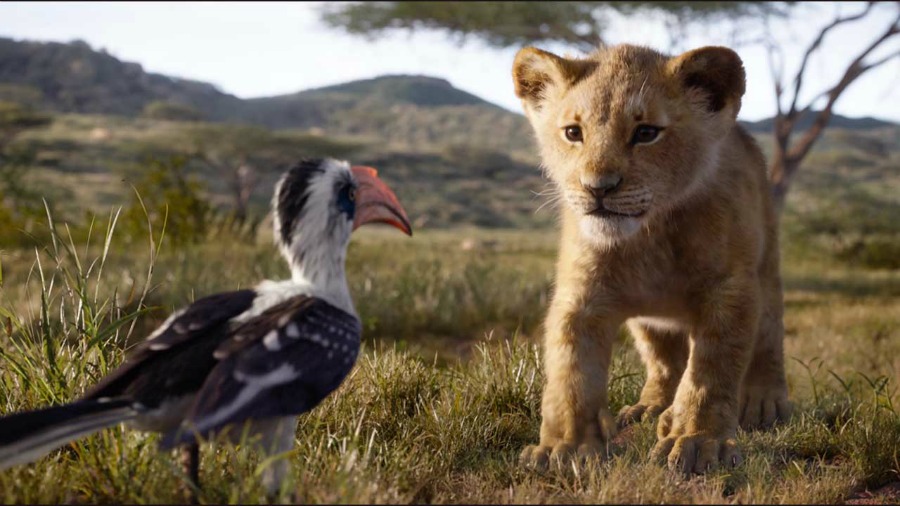
Fandango: What does the technological innovation mean for the viewers in the theater? Will the audience be able to appreciate it?
Jon Favreau: The hope is that somebody who doesn't know anything about how we made this will walk into the movie, sit down and think they were actually watching real environments with real animals in them. The minute you look behind the scenes, once you pull the curtain back, you realize that everything looks like a Pixar movie. But once everything's rendered, cut together and lit and the music is laid over it, it should feel like something that was actually shot out there in the real world. That was our goal.
Fandango: What was the biggest challenge in crossing over the characters into photorealistic live-action? Movement? Facial expression?
Jon Favreau: We learned a lot on The Jungle Book, and one of the things we learned is that if you push the facial expressions on an animal too much it starts to look less like an animal and more like a human. Part of the naturalistic approach of The Lion King that would have not fit in with our tone. Part of it is trying to make the animals express emotions without facial expression, so like in the case of Pumbaa, who is a very comedic character who has a lot of facial expressions in the old one, how do you make a warthog comical if you can't make him make faces? You have to look at the reference of warthogs in nature, and you start to see that they're very comical in the way that they move.
So, part of it was directing the animators to express the emotions of the characters, be it the lion or the meerkat or the warthog, in a way that is both consistent with what people would see in nature, but also to express the performance choices the actors are making. So, there’s a lot of body language that was worked into this piece. What’s nice is that as you watch the film all together, I think it's very successful. But it definitely is one of the things that created one of the bigger challenges, to try to help bring the charm and humanity of the original productions into this without having the ability to manipulate the facial expressions and the naturalism of the animals to the extent that you could in animation.
Fandango: You cast James Earl Jones to reprise his role from the original as Mufasa, and you've got Shahadi Wright Joseph, who also played young Nala on Broadway. Was that a conscious choice to bridge the different versions together, and did you attempt to bring anyone else back for this one?
Jon Favreau: I think we definitely wanted to bridge [the productions]. We were inspired by the casting choices of the Broadway production, how that built upon the animated film, and we tried to incorporate that authenticity and really celebrating African culture in this production, because it's 2019 and it felt like that was a way that we could update the production.
James Earl Jones, I felt was an iconic figure from the original and he would have been very difficult to replace. And Mufasa - spoiler alert - is a character that isn't in the entire movie, so it allowed for a bit of a hand-off and a comfort level for the audience as they sat in their seat and got used to this production. Then we had our new cast that was in there and all of them, much like you would in a Broadway production, they all sang their own songs, and that was certainly informed by the stage show. And it gave us permission to bring a new cast in and help differentiate this from previous productions, which I felt was important as well.
But even “Circle of Life” is sung by somebody who was with the London production for 20 years, so we definitely wanted to pay homage to this iconic touring and Broadway and London based musical production as well.
Fandango: Are there visual homages to the stage version?
Jon Favreau: No, the stage version, that one had a lot of innovative puppetry and set design that was really geared towards trying to bring a cinematic impact to a proscenium production. So those things were definitely specific to that medium. I will say, however, that they really explored and dove deeper into the authenticity of the setting, so we tried to build upon that. In that area, we definitely drew inspiration, and you'll see a lot more of the dimensionalizing of the culture that's being celebrated in this film.
Fandango: Beyoncé is obviously a big deal for this movie.
Jon Favreau: Yes.
Fandango: I read that you wanted her involved so bad you were willing to work around her schedule. Did you have to coordinate much in that regard?
Jon Favreau: Sure, she's very busy. She's doing a lot. She was directing Homecoming, making Lemonade, her family got larger [laughs] while we were working together. And between touring and albums, she really has a prolific career in many areas. She's an artist and a singer and a performer and very involved. She has a lot of things going on. But she's incredibly engaged and committed, and so what was wonderful was that when we did get together to work, she was exceptional, as you can imagine in her performance, but also really gives everything a lot of thought. She's very hard-working and puts a lot of thought into things, and would often be so extremely well-prepared that she was clearly working on a lot on this even when we weren't together.
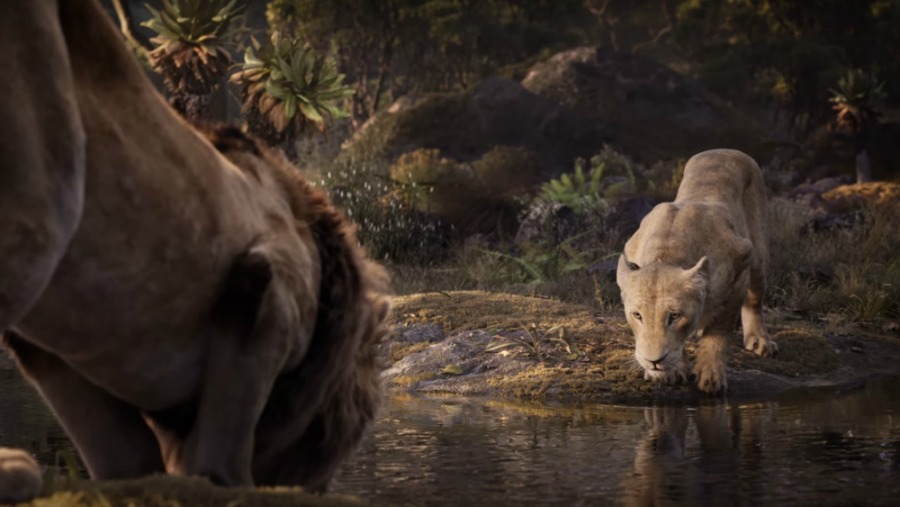
Fandango: Did you lose your mind when you got the call that she was definitely in?
Jon Favreau: I was pretty stoked because I knew my stock was going to rise in my home [laughs]. Dad got cool for about a week there because my daughters and my wife are huge fans and I was introduced to her music through them, and so it felt exciting. And then, you remember, this was about three years ago, and so really understanding who she is and what she represents to so many people and the fact that she's collaborating with me on this really helps differentiate it from previous productions. It helps give this production its own personality, because she's such an important figure and her musical interpretation is seen as something that people welcome.
Much like in the tradition of the stage production, when you have a new cast to a classic piece, part of the fun is seeing how talented people of each generation reinterpret established material. Hearing her sing "Can You Feel the Love Tonight?” was definitely extremely memorable and all of us just listened to it over and over. And she sings the duet with Donald Glover, who is an incredible talent as well, not only comedically, but also musically. So to hear the two of them together singing this classic song with so much personality and emotion, we felt really confident that people are going to be excited when they heard this.
Fandango Is Nala a bigger character this time as a result?
Jon Favreau: Yeah. In the original film, her role is not as large as in the stage production, and we definitely drew inspiration, and that was one of the areas where we were going to expand this. There's an opportunity to build upon especially the female characters of Sarabi played by Alfre Woodard and Nala played by Beyoncé that the stage play explores further. It has a lot more time to do so than the original film. That was an area that we could build upon the original.
Fandango: Is her new song still the only new song?
Jon Favreau: Yeah, it doesn't replace anything. We have all the original songs, but there's a song that she performed and wrote in the spirit of the production along with working with Lebo M., who's part of it with Hans Zimmer. They were all collaborating with her and helping to bring this new piece of music into a film where there's already a very established musical personality to the piece. So it was nice of them to have them working with her to allow the new song to feel organically a part of the new production.
The Lion King hits theaters on July 19. Get your tickets right now here at Fandango.
